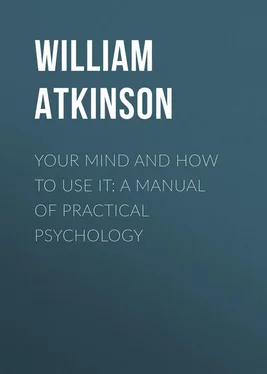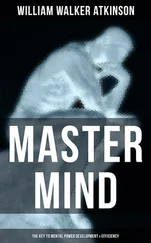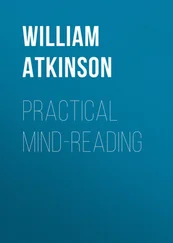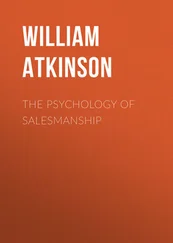William Atkinson - Your Mind and How to Use It - A Manual of Practical Psychology
Здесь есть возможность читать онлайн «William Atkinson - Your Mind and How to Use It - A Manual of Practical Psychology» — ознакомительный отрывок электронной книги совершенно бесплатно, а после прочтения отрывка купить полную версию. В некоторых случаях можно слушать аудио, скачать через торрент в формате fb2 и присутствует краткое содержание. Жанр: foreign_antique, foreign_prose, на английском языке. Описание произведения, (предисловие) а так же отзывы посетителей доступны на портале библиотеки ЛибКат.
- Название:Your Mind and How to Use It: A Manual of Practical Psychology
- Автор:
- Жанр:
- Год:неизвестен
- ISBN:нет данных
- Рейтинг книги:5 / 5. Голосов: 1
-
Избранное:Добавить в избранное
- Отзывы:
-
Ваша оценка:
- 100
- 1
- 2
- 3
- 4
- 5
Your Mind and How to Use It: A Manual of Practical Psychology: краткое содержание, описание и аннотация
Предлагаем к чтению аннотацию, описание, краткое содержание или предисловие (зависит от того, что написал сам автор книги «Your Mind and How to Use It: A Manual of Practical Psychology»). Если вы не нашли необходимую информацию о книге — напишите в комментариях, мы постараемся отыскать её.
Your Mind and How to Use It: A Manual of Practical Psychology — читать онлайн ознакомительный отрывок
Ниже представлен текст книги, разбитый по страницам. Система сохранения места последней прочитанной страницы, позволяет с удобством читать онлайн бесплатно книгу «Your Mind and How to Use It: A Manual of Practical Psychology», без необходимости каждый раз заново искать на чём Вы остановились. Поставьте закладку, и сможете в любой момент перейти на страницу, на которой закончили чтение.
Интервал:
Закладка:
It is a common error to suppose that we are directly conscious of objects outside of ourselves. This is impossible, for there is no direct knowledge of such outside objects. We are conscious merely of our sensations of, or mental images of, the outside objects. All that it is possible for us to be directly conscious of are our own mental experiences or states. We cannot be directly conscious of anything outside of our own minds. We are not directly conscious of the tree which we see ; we are directly conscious merely of the sensation of the nerves arising from the impact of the light waves carrying the image of the tree. We are not directly conscious of the tree when we touch it and perceive its character in that way; we are directly conscious merely of the sensation reported by the nerves in the finger tips which have come in contact with the tree. We are directly conscious even of our own bodies only in the same way. It is necessary for the mind to experience that of which it may become conscious. We are conscious only of (1) that which our mind is experiencing at this moment, or (2) that which it has experienced in the past, and which is being re-experienced this moment by the process of the memory, or which is being re-combined or re-arranged this moment by the imagination.
But it must not be thought that every mental state or mental fact is in the field of consciousness. This error has been exploded for many years. The fact is now recognized that the field of consciousness is a very narrow and limited one, and that the great field of mental activity lies outside of its narrow limits. Beyond and outside of the narrow field of consciousness lies the great subconscious storehouse of memory in which are stored the experiences of the past, to be drawn again into the field of consciousness by an effort of the will in the act of recollection, or by association in ordinary remembrance. In that great region, also, the mind manifests many of its activities and performs much of its work. In that great region are evolved the emotions and feelings which play such an important part in our lives, and which often manifest a vague disturbing unrest long before they rise to the plane of consciousness. In that great region are produced the ideas, feelings, and conceptions which arise to the plane of consciousness and manifest that which men call "genius."
On the subconscious plane the imagination does much of its work, and startles its owner by presenting him with the accomplished result in the field of consciousness. In the subconscious field is performed that peculiar process of mental mastication, digestion, and assimilation with which all brain workers are familiar, and which absorbs the raw mental material given it, separates, digests, and assimilates it, and re-presents it to the conscious faculties sometime after as a transformed substance. It has been estimated that at least eighty-five per cent. of our mental activities are performed below or outside of the field of consciousness. The psychology of to-day is paying much attention to this formerly neglected great area or areas of the mind. The psychology of to-morrow will pay still greater attention to it.
The best of the modern authorities agree that in the great field of subconscious mentation is to be found the explanation of much that is unexplainable otherwise. In fact, it is probable that before long consciousness will be regarded as a mere focusing of attention upon mental states, and the objects of consciousness merely as that portion of the contents of the mind in the field of mental vision created by such focusing.
CHAPTER V
Attention
INTIMATELY connected with the object of consciousness is that process of the mind which we call "attention." Attention is generally defined as "the application of the mind to a mental state." It is often referred to as "concentrated consciousness," but others have ventured the somewhat daring conjecture that consciousness itself is rather the result of attention, instead of the latter being an incident of consciousness. We shall not attempt to discuss this question here, except to state that consciousness depends very materially upon the degree of attention bestowed upon its object. The authorities place great importance upon the intelligent direction of the attention, and hold that without this the higher forms of knowledge are impossible.
It is the common belief that we feel, see, hear, taste, or smell whenever objects affecting those senses come in contact with the organs of sense governing them. But this is only a partial truth. The real truth is that we become conscious of the report of these senses only when the attention is directed toward the sensation, voluntarily or involuntarily. That is to say, that in many cases although the sense nerves and organs report a disturbance, the mind does not become consciously aware of the report unless the attention is directed toward it either by an act of will or else by reflex action. For instance, the clock may strike loudly, and yet we may not be conscious of the fact, for we are concentrating our attention upon a book; or we may eat the choicest food without tasting it, for we are listening intently to the conversation of our charming neighbor. We may fail to perceive some startling occurrence happening under our very eyes, for we are buried in deep thought concerning something far removed from the present scene. There are many cases on record showing that one may be so interested in speaking, thinking, or acting that he will not experience pain that would otherwise be intolerable. Writers have forgotten their pain in the concentrated interest bestowed upon their work; mothers have failed to feel pain when their infants required urgent attention; orators have been so carried away by their own eloquence that they have failed to feel the pricking of the pin by means of which their friends have sought to attract their attention. Not only perception and feeling depend largely upon attention, but the processes of reasoning, memory, and even of will, depend upon attention for much of their manifestation.
Psychologists divide attention into two general classes, viz.: (1) voluntary attention and (2) involuntary attention.
Voluntary attention is attention directed by the will to some object of our own more or less deliberate selection. It requires a distinct effort of the will in order to focus the attention in this way, and many persons are scarcely aware of its existence, so seldom do they manifest it. Voluntary attention is the result of training and practice, and marks the man of strong will, concentration, and character. Some authorities go so far as to say that much of that which is commonly called "will power" is really but a developed form of voluntary attention, the man of "strong will" holding before him the one idea which he wishes to realize.
Involuntary attention, often called "reflex attention," is attention called forth by a nervous response to some sense stimulus. This is the common form of attention, and is but the same form which is so strongly manifested by children whose attention is caught by every new object, but which cannot be held for any length of time by a familiar or uninteresting one.
It is of the utmost importance that one should cultivate his power of voluntary attention. Not only is the will power strengthened and developed in this way, but every mental faculty is developed by reason thereof. The training of the voluntary attention is the first step in mental development.
That the voluntary attention may be deliberately trained and developed is a fact which many of the world's greatest men have proved for themselves. There is only one way to train and develop any mental power of faculty – and that is by practice and use . By practice, interest may be given to objects previously uninteresting, and thus the use of the attention develops the interest which further holds it. Interest is the natural road over which attention travels easily, but interest itself may be induced by concentrated attention. By studying and examining an object, the attention brings to light many new and novel features regarding the thing, and these produce a new interest which in turn attracts further and continued attention.
Читать дальшеИнтервал:
Закладка:
Похожие книги на «Your Mind and How to Use It: A Manual of Practical Psychology»
Представляем Вашему вниманию похожие книги на «Your Mind and How to Use It: A Manual of Practical Psychology» списком для выбора. Мы отобрали схожую по названию и смыслу литературу в надежде предоставить читателям больше вариантов отыскать новые, интересные, ещё непрочитанные произведения.
Обсуждение, отзывы о книге «Your Mind and How to Use It: A Manual of Practical Psychology» и просто собственные мнения читателей. Оставьте ваши комментарии, напишите, что Вы думаете о произведении, его смысле или главных героях. Укажите что конкретно понравилось, а что нет, и почему Вы так считаете.












